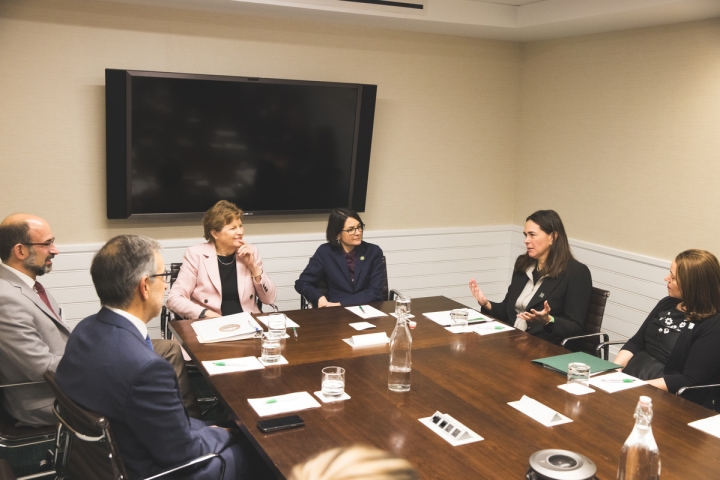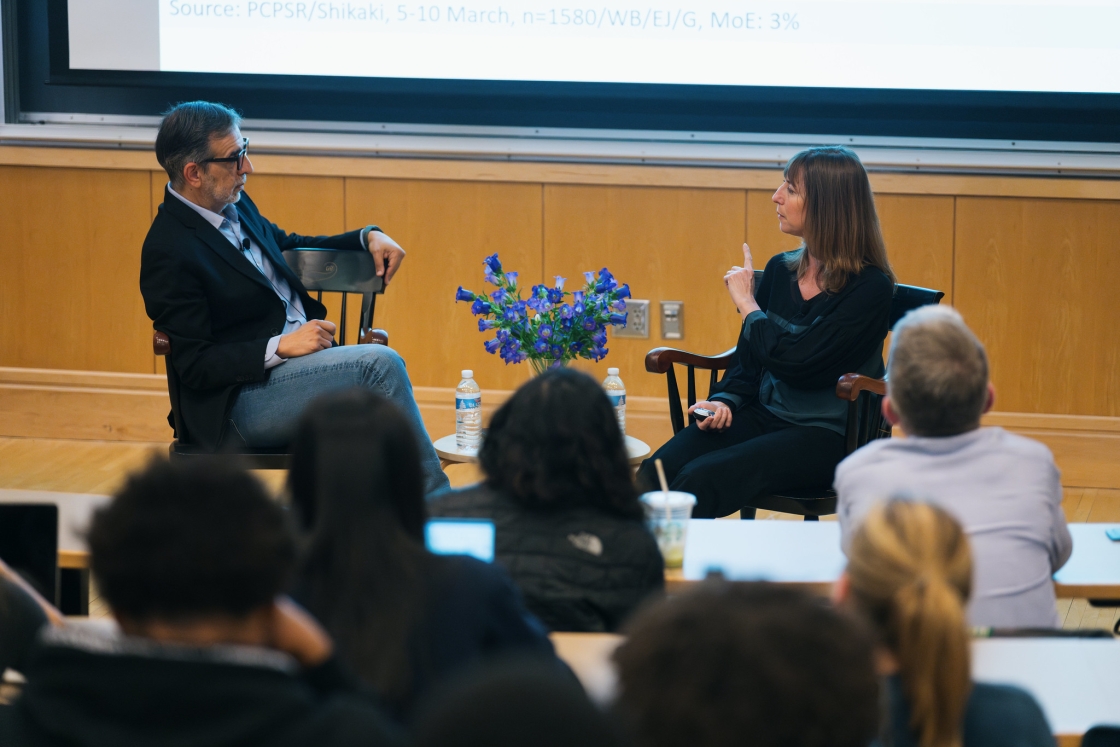Sen. Jeanne Shaheen, D-N.H., and Rep. Becca Balint, D-Vt., met with President Sian Leah Beilock and faculty from the Middle Eastern Studies Program on Thursday to learn about Dartmouth’s approach in facilitating civil discussion around the war between Israel and Hamas.
Beilock and the lawmakers were joined in the Hanover Inn by Senior Lecturer Ezzedine Fishere, a best-selling Egyptian author, academic, and former diplomat who has written extensively on the region, and Associate Professor Jonathan Smolin, an expert in Middle Eastern politics and popular culture.
In addition to their appointments in Middle Eastern Studies, both professors are also affiliated with the Jewish Studies Program.
This past fall, in the wake of the Oct. 7 Hamas terrorist attack on Israel and Israel’s ongoing military operations in the Gaza Strip, faculty from the Middle Eastern Studies and Jewish Studies programs jointly hosted a series of public forums geared toward providing an intellectual framework for understanding the unfolding events.
The collaboration between the two programs has drawn national recognition and helped model a path toward open dialogue on campus at a moment when the conflict in the Middle East was revealing seemingly intractable divisions at universities around the country.
Shaheen, who sits on the Senate Foreign Relations Committee, and Balint were in Hanover on Thursday for a welcome reception for two female judges who were forced to flee Afghanistan and are now living in the Twin States. Dartmouth announced that the two judges will be visiting scholars.
“We’ve been so proud of our faculty’s ability to work across different perspectives, which have opened up the campus to thinking about dialogue rather than shouting,” President Beilock said. “This didn’t just happen. The faculty in these programs have worked and taught together for many years. We think Dartmouth’s scholar-teacher model is something that allows this kind of discourse to happen.”
For several years, Fishere has co-taught a course on Israel and Palestine with Bernard Avishai, an American Israeli visiting professor of government who is also affiliated with the Jewish Studies Program.
“The fact that Professor Avishai and I are in the classroom together allows us to be critical towards the community that we’re each identified with, and that allows the students safety to also be critical and to look for their own biases,” Fishere said. “We keep saying, we’re not here to tell you what is right, we’re here to explain why people do the things they do. Once students think about these things, even if they keep their bias, you open a space for growth. I think that shift goes hand in hand in restoring universities as places for learning. You don’t come to an Ivy League school to be indignant; you come to learn.”
For Smolin, the value of higher education is in cultivating classroom spaces that uphold the values of dialogue and inclusivity.
“Inclusivity means different viewpoints, not the ones you already agree with. When I come to the first day of class and I see very different perspectives among the students, I’m excited. It’s something to embrace. We as faculty and as people who are convening these discussions need to feel confident about these principles and values, so that the classroom is not a space to advocate, to make points—it’s a space of learning.”
The two lawmakers praised the faculty and Dartmouth for cultivating a model of dialogue that seeks understanding across differences.
“I was glad to meet with the faculty at Dartmouth to learn more about the important discussions happening on campus regarding the conflict in the Middle East,” Sen. Shaheen said. “By modeling the necessity of having conversations with people with whom we disagree, Dartmouth is engaging students with diverse perspectives towards mutual compassion and understanding.”
“The work that Professors Smolin and Fishere are doing is extraordinary, and we need more of it,” Rep. Balint said. “They clearly understand the importance of holding complexity and nuance when talking about very difficult issues, and have created space in their classroom that honors the dignity and humanity of all sides. I know what they’ve hit on is a productive way forward for all of us who want to talk about these difficult issues. And I look forward to engaging further with them.”


